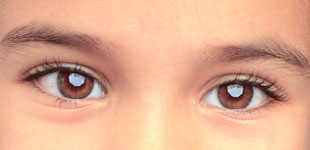One of the great challenges that faces each of this in this world is how to respond with a forgiving heart to the cruelty and injustice we see around us.
The great human wager is whether this is best accomplished by turning the other cheek and shining a light of pure absolution into the darkness, trusting that the light will draw others toward it; or whether we should stand against the darkness with equal force, then try to flood the world with light once the darkness is held at bay.
The answer we choose may depend on our quality of heart, our spiritual predisposition, or the circumstances in which we live our lives. But in any case, one thing is certain: Forgiveness cannot be a disengaged, pastel emotion. It is demanded in the bloodiest of human circumstances, and needs to stand against the strongest winds of human rage and hate. To be a real virtue, engaged with world around us, it must be muscular, alive, and able to feel the sting of the outrages and inequities of inhuman and inhumane acts. It must be able to face the dark side of the human condition.
We see through a glass darkly, and none of us more clearly than the rest. But this much we can know. It is in the eyes of the children that the truth will be discovered. If our actions fill the eyes of the children with love, they are actions of forgiveness. If they fill them with fear and sorrow and anger, no claim we make for righteousness or justice will stand against the truth that those young eyes reveal.
We are the creators, we are the healers. We are the ones by whose hands the clay of their young lives is shaped. We do them no justice when we hide their eyes from the cruelty in the world, for they will find it soon enough. But neither do we do them justice when we fail to show them the beauty of a sunset, or to teach them of the healing miracle of love.
We must show them the cruelty, then teach them how to love. We must show them the injustice, then teach them how to serve. We must open their eyes to the sunsets, open their hearts to the murmuring tides. We must teach them how to hallow life, to value kindness, to honor the strong who lift up the weak. And then we must take their hands and lead them to a high place of the spirit, where they can look out over the vast richness of life on earth and see that it is good.
If we do these things, we may rest easy in the belief that a seed of forgiveness is being planted. We ourselves may not see it blossom in our lifetime; that is the essence of faith. But if we place light and hope in the eyes of the children, we may move forward through a dark world knowing that against the hope of children, darkness and cruelty cannot stand.
This reflection was contributed to Spirituality & Practice for the anniversary of 9/11. Kent Nerburn is an author, educator involved in Native American issues and one of our Living Spiritual Teachers.
